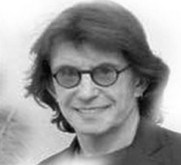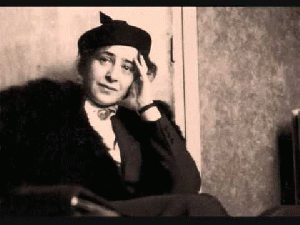Reprinted from Counterpunch
Authoritarianism in the American collective psyche and in what might be called traditional narratives of historical memory is always viewed as existing elsewhere. Viewed as an alien and demagogic political system, it is primarily understood as a mode of governance associated with the dictatorships in Latin America in the 1970s and, of course, in its most vile extremes, with Hitler's poisonous Nazi rule and Mussolini's fascist state in the 1930s and 1940s. These were and are societies that idealized war, soldiers, nationalism, militarism, political certainty, fallen warriors, racial cleansing, and a dogmatic allegiance to the homeland. [i]
Education and the media were the propaganda tools of authoritarianism, merging fascist and religious symbols with the language of God, family, and country, and were integral to promoting servility and conformity among the populace. This script is well known to the American public and it has been played out in films, popular culture, museums, the mainstream media, and other cultural apparatuses. Historical memory that posits the threat of the return of an updated authoritarianism turns the potential threat of the return of authoritarianism into dead memory. Hence, any totalitarian mode of governance is now treated as a relic of a sealed past that bears no relationship to the present. The need to retell the story of totalitarianism becomes a frozen lesson in history rather than a narrative necessary to understanding the present.
Hannah Arendt, the great theorist of totalitarianism, believed that the protean elements of totalitarianism are still with us and that they would crystalize in different forms. [ii] Far from being a thing of the past, she believed that totalitarianism "heralds as a possible model for the future."[iii] Arendt was keenly aware that the culture of traditionalism, an ever present culture of fear, the corporatization of civil society, the capture of state power by corporations, the destruction of public goods, the corporate control of the media, the rise of a survival-of-the-fittest ethos, the dismantling of civil and political rights, the ongoing militarization of society, the "religionization of politics,"[iv] a rampant sexism, an attack on labor, an obsession with national security, human rights abuses, the emergence of a police state, a deeply rooted racism, and the attempts by demagogues to undermine critical education as a foundation for producing critical citizenry were all at work in American society. For Arendt, these anti-democratic elements in American society constituted what she called the "sand storm," a metaphor for totalitarianism. [v]
Historical conjunctures produce different forms of authoritarianism, though they all share a hatred for democracy, dissent, and human rights. It is too easy to believe in a simplistic binary logic that strictly categorizes a country as either authoritarian or democratic and leaves no room for entertaining the possibility of a mixture of both systems. American politics today suggests a more updated if not different form of authoritarianism or what some have called the curse of totalitarianism.
In this context, it is worth remembering what Huey Long said in response to the question of whether America could ever become fascist: "Yes, but we will call it anti-fascist."[vi] Long's reply indicates that fascism is not an ideological apparatus frozen in a particular historical period, but as Arendt suggested a complex and often shifting theoretical and political register for understanding how democracy can be subverted, if not destroyed, from within.
The notion of soft fascism was articulated in 1985 in Bertram Gross's book, Friendly Fascism, in which he argued that if fascism came to the United States it would not embody the same characteristics associated with fascist forms in the historical past. There would be no Nuremberg rallies, doctrines of racial superiority, government-sanctioned book burnings, death camps, genocidal purges, or the abrogation of the constitution. In short, fascism would not take the form of an ideological grid from the past simply downloaded onto another country under different historical conditions.
Gross believed that fascism was an ongoing danger and had the ability to become relevant under new conditions, taking on familiar forms of thought that resonate with nativist traditions, experiences, and political relations. Similarly, in his Anatomy of Fascism, Robert O. Paxton argued that the texture of American fascism would not mimic traditional European forms but would be rooted in the language, symbols, and culture of everyday life. According to Paxton:
"No swastikas in an American fascism, but Stars and Stripes (or Stars and Bars) and Christian crosses. No fascist salute, but mass recitations of the Pledge of Allegiance. These symbols contain no whiff of fascism in themselves, of course, but an American fascism would transform them into obligatory litmus tests for detecting the internal enemy."[vii]
It is worth noting that Umberto Eco in his discussion of "eternal fascism," also argued that any updated version of fascism would not openly assume the mantle of historical fascism; rather, new forms of authoritarianism would appropriate some of its elements, making it virtually unrecognizable from its traditional forms. [viii] Eco contended that fascism, if it comes to America, will have a different guise, although it will be no less destructive of democracy.
The renowned political theorist Sheldon Wolin, in Democracy Incorporated, expanded and updated these views by arguing persuasively that the United States has produced its own unique form of authoritarianism, which he calls "inverted totalitarianism."[ix] Wolin claimed that in the United States an emerging totalitarianism has appeared in a form different from what we have seen in the past. Instead of a charismatic leader, the government is now governed through the anonymous and largely remote hands of corporate power and finance capital. Political sovereignty is largely replaced by economic sovereignty as corporate power takes over the reins of governance.
The more money influences politics, the more corrupt the political culture becomes. Under such circumstances, holding office is largely dependent on having huge amounts of capital at one's disposal, while laws and policies at all levels of government are mostly fashioned by lobbyists representing big business corporations and financial institutions. Moreover, as the politics of Obama's health-care reform indicate -- a gift to the health insurance giants -- such lobbying, as corrupt and unethical as it may be, is now carried out in the open and displayed by insurance and drug companies as a badge of honor -- a kind of open testimonial to their disrespect for democratic governance and a celebration of their power.
Rather than forcing a populace to adhere to a particular state ideology, the general public in the United States is largely depoliticized through the influence of corporations over schools, higher education, and other cultural apparatuses. The deadening of public values, civic consciousness, and critical citizenship are also the result of the work of anti-public intellectuals representing right-wing ideological and financial interests, a powerful corporate controlled media that are largely center-right, and a market-driven public pedagogy that reduces the obligations of citizenship to the endless consumption and discarding of commodities. In addition, a pedagogy of historical, social, and racial amnesia is constructed and circulated through a highly popular celebrity culture and its counterpart in corporate-driven news, television, radio, and entertainment to produce a culture of stupidity, censorship, and diversionary spectacles.
The protean forces for creating an authoritarian state are in full play in the United States and extend far beyond the shadow of a debased and corrupt politics. A set of complex forces working in tandem is slowly, insidiously eroding the very foundations of a civic and democratic culture. Some of the most glaring issues are massive unemployment; a rotting infrastructure; the defunding of vital public services; the dismantling of the social safety net; expanding levels of poverty, especially for children; and an imprisonment binge largely targeting poor minorities of color.
At the same time, a reign of lawlessness is overtaking the United States as police violence and state terrorism result in the killing of an increasing number of black men, women, and young people. But such a list barely scratches the surface. Institutions that were once designed to serve the public good now wage war against all things public. For instance, we have witnessed in the last 30 years the restructuring of public education as either a source of profit for corporations or an updated version of control modeled after prison culture coupled with an increasing culture of lying, cruelty, and corruption.
A culture of thoughtlessness now drives the predatory formative culture that allows a range of anti-democratic tendencies to flourish -- tendencies that embody a new and extreme form of lawlessness and a theater of cruelty. Civic literacy in the United States is not simply in decline, it is the object of scorn and derision. The corporate controlled media have abandoned even the pretense of holding power accountable and now primarily serve as second rate entertainment venues spouting the virtues of balance, consumerism, greed, and American exceptionalism.
(Note: You can view every article as one long page if you sign up as an Advocate Member, or higher).






